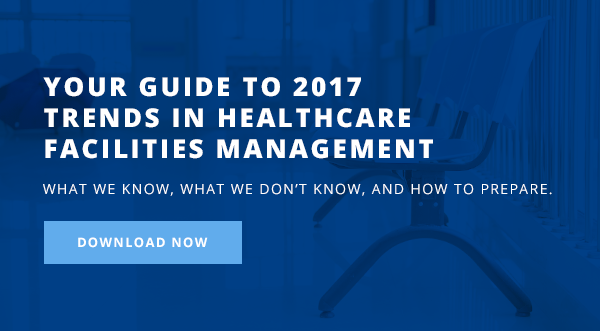As a hospital facilities management professional, it can be easy to let budgetary concerns of the facility overall fall by the wayside in the name of efficiency. When something is broken or dirty, it must be cleaned or fixed.
If creating and maintaining a budget is not top of mind now, it should be. The fact is that the choices you make in the facilities management department can have a significant impact on the hospital’s bottom line, which is critical (yes, even for non-for-profit facilities).
Keep reading for key tips on finding cost savings and budgetary efficiency without sacrificing the quality or patient experience of your facility.
1. Look at the Bigger Picture
The facilities management budget for any organization cannot be looked at in a vacuum. Rather, your budget is directly related to the performance and needs of all the other departments at your facility. Because patient experience is so critical in healthcare, facilities tasks that directly impact that are likely to take high priority places in the budget, while those that do not may deemed less important in the final budget.
2. Maintain Warranty Database
Equipment repair can represent a huge cost for hospital facility management. While essential pieces of healthcare equipment cannot go unrepaired, it is important that your department keep track of what is currently under warranty. That way, any repairs or maintenance that are covered by a product warranty do not end up cutting into your budget. Before any repair or maintenance is ordered, make it a habit to check the warranty database and verify whether or not that equipment is covered.
3. Establish Pricing Agreements with Vendors
Vendor pricing agreements can be a very effective way to maintain your facility’s efficiency without going over your budget. If you lay out what you expect and are willing to spend on repairs over the course of the life of a piece of equipment, and get that amount in writing, you will not be subject to unexpected charges when maintenance or repairs are required.
4. Follow CMS Alternative Equipment Maintenance Guidelines
In 2013, the Centers for Medicare & Medicaid Services (CMS) issued a memo clarifying their stance on alternative equipment maintenance, meaning maintenance schedules that do not directly align with equipment manufacturer’s guidelines. According to this memo, alternative equipment maintenance is acceptable for some facility equipment that does not directly impact patient health or safety. Utilizing alternative equipment maintenance schedules can factor positively into your budget when done within the CMS guidelines.
5. Give Thorough Explanations for Expenditures
Even if you are creating the budget for your department, you will not have final say over what goes into it. When you send your budget to the finance department, you will have a lot more luck getting it approved if you are clear in why you need what you need and how your expenditures have a direct impact on the facility’s overall performance. This way, you will not be stuck answering endless questions about each line item because you will already have a complete justification for your choices (though of course that does not guarantee your budget’s approval).
6. Health & Safety are Always Top Priority
No matter what your annual budget ends up looking like, patient health and safety should always be the top priority of every department, including hospital facility management. While all expenditures should be expected to be reviewed, those that impact patient health and safety are likely to have more related leniency. It is important that in creating a healthcare facilities management budget not to skimp on those types of priorities.
